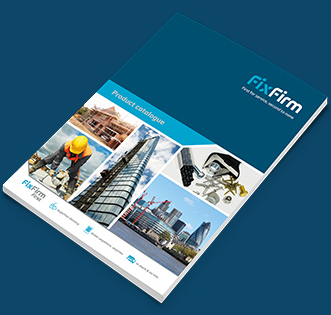The construction industry plays a crucial role in the UK's carbon reduction targets, and as such, it's imperative that companies operating within the sector take steps to reduce their carbon footprint. With the UK government aiming to reduce carbon emissions to net zero by 2050, businesses must act now to make changes that will have a positive impact on the environment.
From the sourcing of materials to the management of waste, every aspect of the construction process has the potential to have an impact on the environment. Making small changes such as reducing energy usage or replacing traditional materials helps us reduce carbon emissions while also saving money in the process.
In this blog, we will show how the installation of our LED lighting system will allow us to do our part in carbon reduction, discuss the UK’s carbon reduction targets, what effect the UK’s carbon reduction targets will have on the construction industry, and what knock-on effect it can have on businesses.
Installation of new LED system
We are proud to announce that we have recently installed our new LED lighting system. CEMA Lighting’s LED products are proven to significantly reduce energy consumption, improve light in all areas and have a positive impact on the carbon footprint. CEMA Lighting is extremely unique to the LED market as they specialise in the highest quality LED fittings and components, going in hand with the 8-year warranty offered.
With CEMA Lighting’s LED lighting system, it is much more energy efficient than our previous lighting. Each of their LED panels has a lifespan of over 70,000 hours in contrast to the 15,000 hours with our previous lighting. CEMA sell the highest quality LEDs on the market, and their 200+ lumen per watt Highbays are the brightest fitting offered in Europe; they reduce energy consumption by over 50% in comparison to traditional lighting.
Due to the installation of these new LED lights, we will have an annual energy-saving percentage of 71%, meaning that we saving over £3000 in lighting alone. Furthermore, over the 8-year warranty that our lighting has, the CO2 savings we will have been 38.46 tonnes, drastically reducing our carbon footprint and doing our bit to contribute to the UK’s target of slashing emissions by 78% by 2035.
What are the UK’s carbon reduction targets?
The UK's carbon reduction targets are designed to reduce the country's carbon footprint and slow the pace of global warming. It is imperative to limit global warming to a maximum of 1.5 degrees Celsius above pre-industrial levels. If the temperature goes above this, we risk reaching tipping points, such as the irreversible melting of arctic permafrost – releasing millennia of stored greenhouse gases. If this happens, we could lose control of our climate for good.
To prevent this, the government has set a target of reducing carbon emissions to net zero by 2050. This is a significant challenge, but one that businesses in the construction industry are well placed to meet.
Before then, the UK has several targets to hit, with the main ones being:
-
To reduce emissions by 68% by 2030
-
Ban on fossil-fuelled car sales by 2030
-
Slash emissions by 78% by 2035
-
Decarbonise the power system by 2035 and generate only clean electricity
-
Half emissions from oil and gas by transitioning to hydrogen power
-
Restoring 280,000 hectares of peat by 2050 in England and increasing plant rates to 30,000 hectares per year by 2050.
How it impacts the construction industry?
The impact of the UK's carbon reduction targets on businesses in the construction industry is two-fold. Firstly, companies must take steps to reduce their carbon footprint, both in terms of their operations and the products they supply. Secondly, businesses must adapt to the changing market, as more and more consumers are seeking environmentally friendly products and services.
In September 2022, the Government released a document: Promoting Net Zero Carbon and Sustainability in Construction. It aims to be a guide for businesses in the construction industry to ensure that they are taking steps to meet the UK’s net zero 2050 aim. It lays out the rules and requirements that the construction industry needs to abide by, including:
-
PPN 06/21 requires suppliers who are bidding on central government contracts (over £5 million p/a) to commit to net zero by 2050
-
All construction businesses must make reports on Scope 1, Scope 2, and a subset of Scope 3 emissions
-
All Contracting Authorities should have strategies in place to achieve net-zero carbon across estates/infrastructure assets by 2050
There are other resources for information which will help construction companies with their carbon reduction aims. The Carbon Reduction Code For The Built Environment lays out ways to reduce carbon/CO2 emissions related to the design, construction, maintenance, operation and decommissioning of built assets.
The Co2nstruct Zero sets out how the construction industry can collectively meet the 2050 net zero requirements. It details the path to decarbonising the construction and built environment sector and has 9 priorities which can be split into 3 subsections: Transport, Buildings and Construction Activity.
What knock-on effect it has on businesses?
The knock-on effect of not considering sustainability and the environment in your business can be significant. Firstly, it can lead to higher costs, as businesses may need to invest in new equipment or processes to reduce their carbon footprint. Secondly, failure to adapt to the changing market could result in lost sales, as consumers seek out environmentally friendly products and services.
Furthermore, the construction industry has a reputation for being one of the largest producers of waste in the UK. By not managing waste properly, businesses risk damaging the environment and damaging their reputation. This, in turn, could impact their bottom line, as consumers become more concerned about the environmental impact of the products and services they use.
Additionally, here are more points that businesses in the construction industry need to consider:
-
An increased competition for suppliers who sell carbon-friendly products
-
The need to maintain compliance with regulations
-
A slowed supply chain process – businesses may need to meet certain requirements before they can obtain certain supplies; it may be more expensive to purchase certain materials; certain materials might not be allowed to be built with so others will need to be considered.
FixFirm’s installation of LED lighting contributes greatly to businesses wanting to offset their carbon usage and can lower their carbon scope scores. We are committed to reducing the amount of carbon that we use, and our LED lighting is just one of the steps that we are taking to ensure we are able to reach the UK target of net zero emissions by 2050.
We believe it's important for businesses in the construction industry to do their part. After all, these targets will have a knock-on effect on businesses of all sizes - not just those in the construction industry. So, if you're looking for a company that cares about the environment and is taking steps to reduce its carbon footprint, look no further than Fix Firm.
To get in touch with us today, CLICK HERE.


